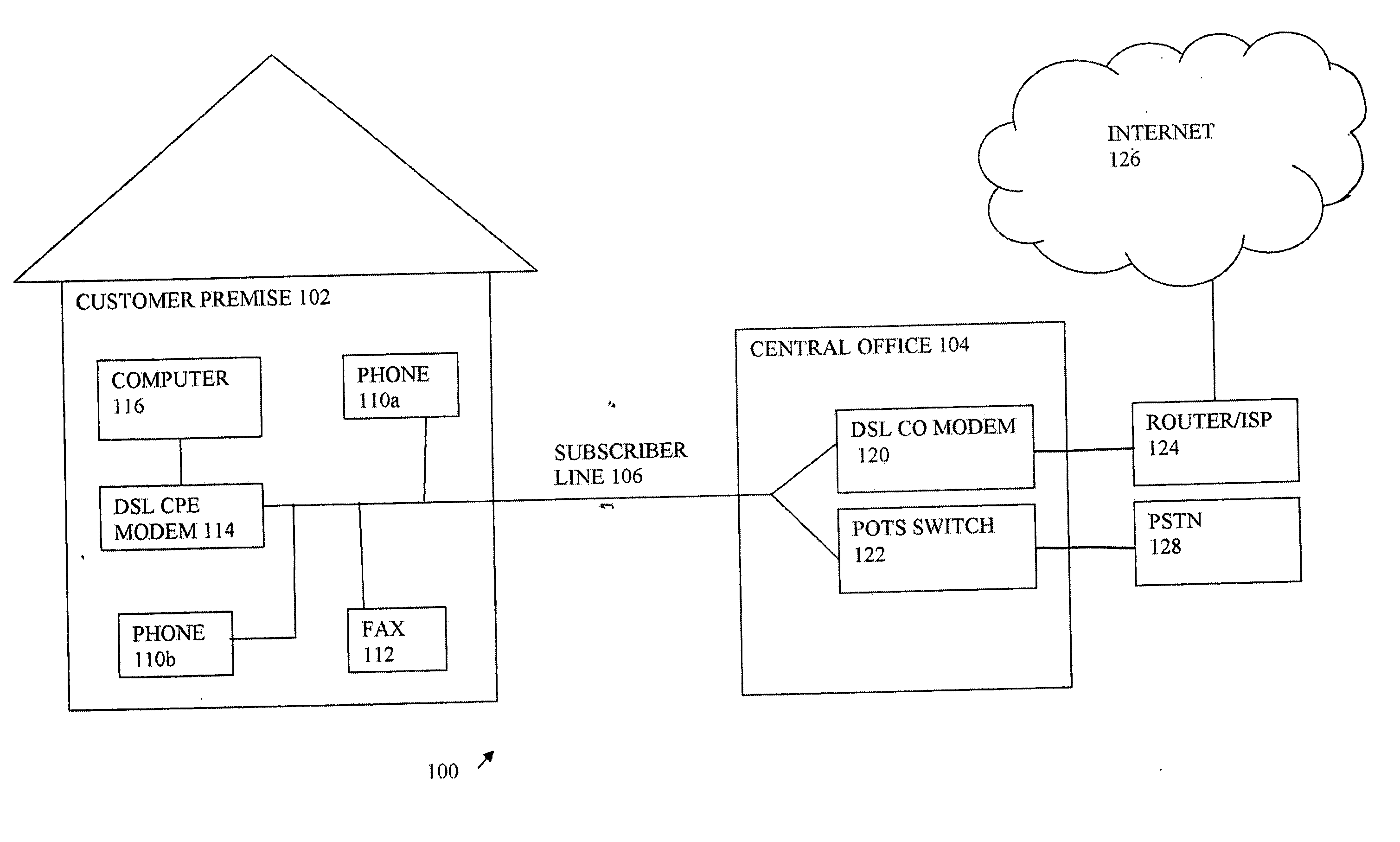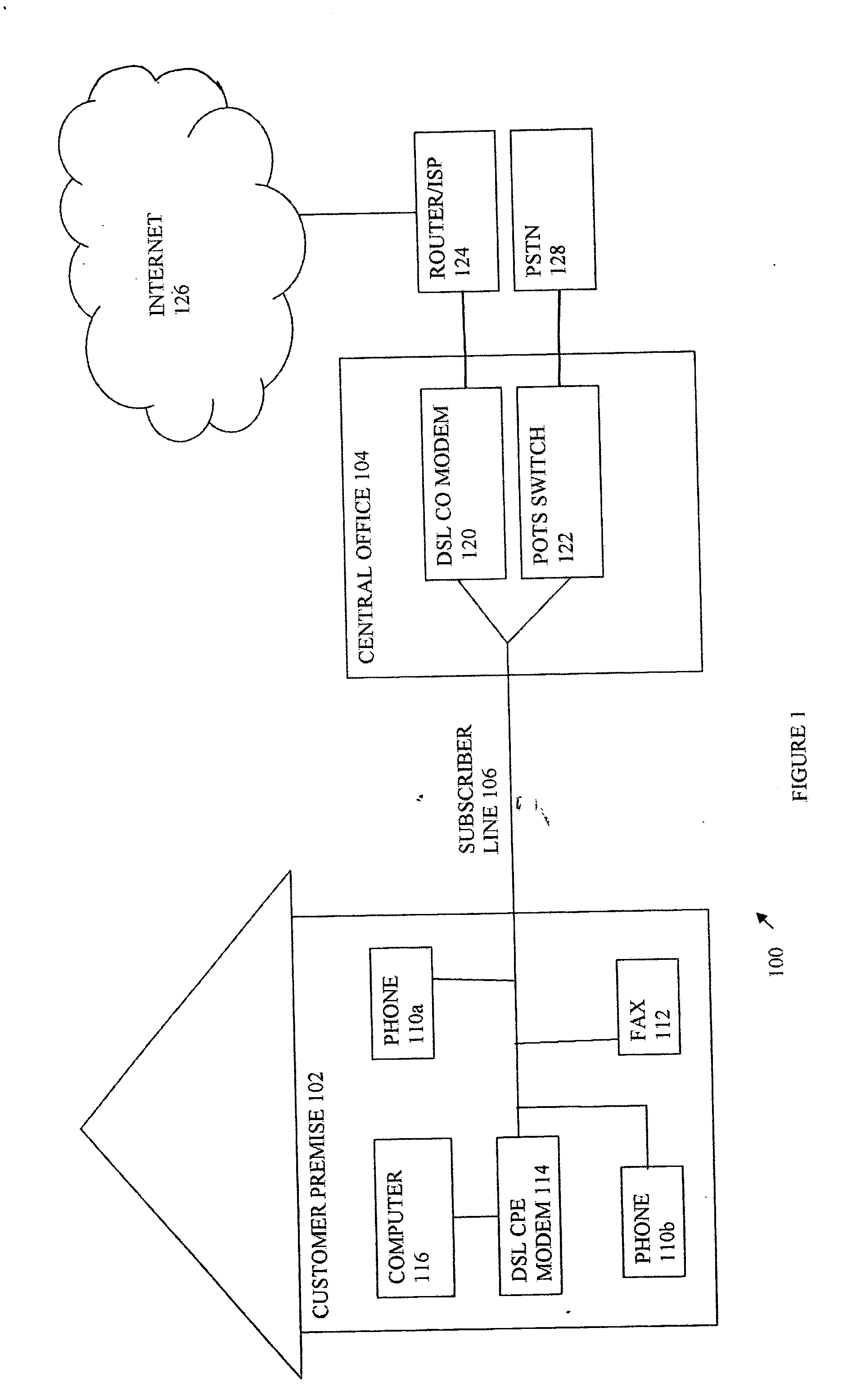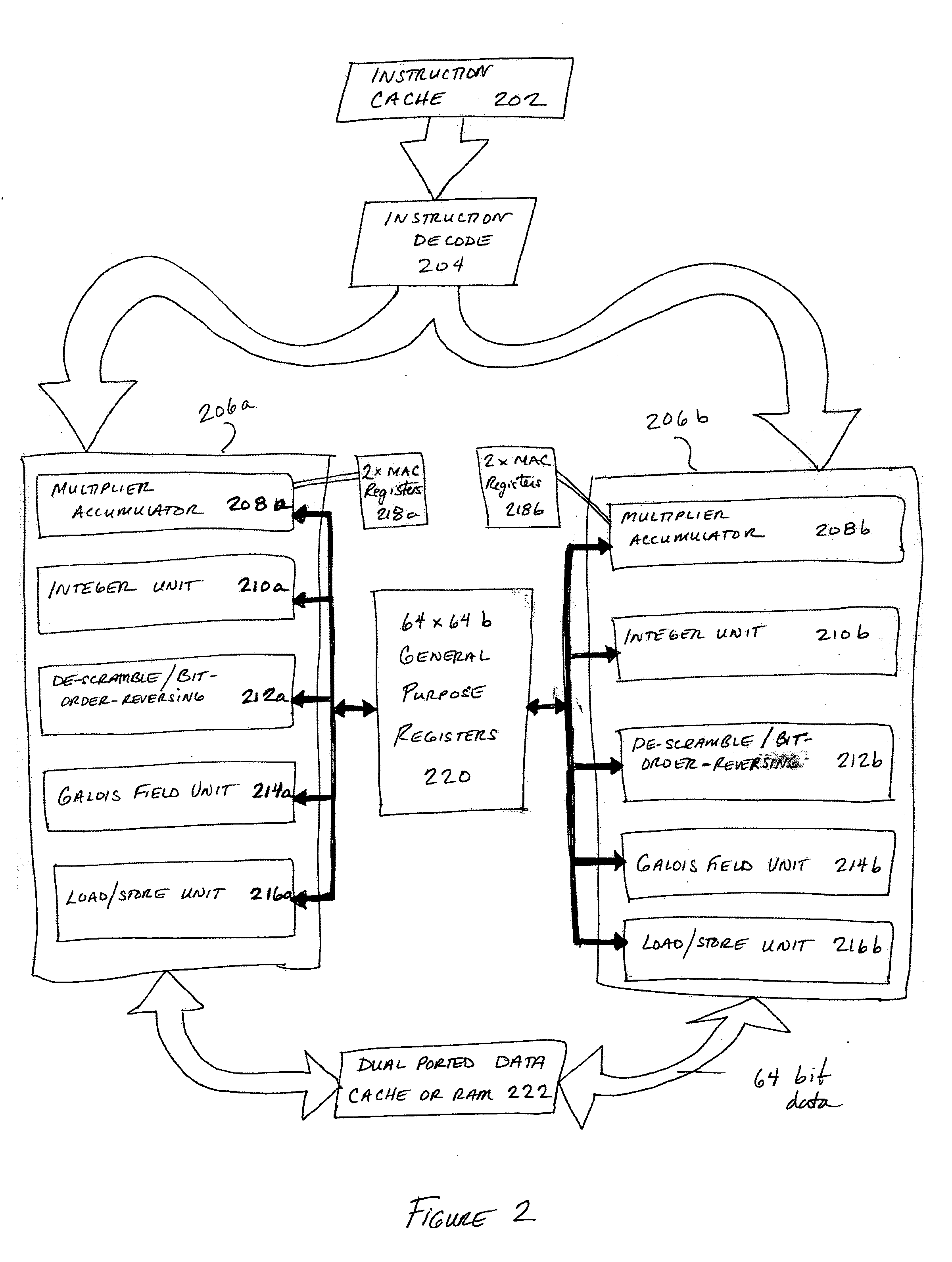System and method for de-scrambling and bit-order-reversing payload bytes in an Asynchronous Transfer Mode cell
a payload and asynchronous transfer technology, applied in the field of system and processor instruction for descrambling and bit-order reversing atm payload data, can solve the problems of inability to adapt or modify to suit different, the first 43 bits of the de-scrambled bit stream are not reliable, and the inability to de-scramble and bit-order reversing one is usually considered an unimportant issue, so as to achieve efficient and fast de-scram
- Summary
- Abstract
- Description
- Claims
- Application Information
AI Technical Summary
Benefits of technology
Problems solved by technology
Method used
Image
Examples
Embodiment Construction
The present invention will now be described in detail with reference to a few preferred embodiments thereof as illustrated in the accompanying drawings. In the following description, numerous specific details are set forth in order to provide a thorough understanding of the present invention. It will be apparent, however, to one skilled in the art, that the present invention may be practiced without some or all of these specific details. In other instances, well known processes and steps have not been described in detail in order not to unnecessarily obscure the present invention.
The invention generally pertains to a new instruction for operating a processor which significantly reduces the number of cycles needed to perform the de-scrambling and bit-order-reversal of ATM cell payload data in accordance with DSL standards (e.g. ADSL or VDSL). In one embodiment, the present invention directly implements both the de-scrambling and bit-order-reversal process for 8 bytes (64 bits) of ...
PUM
 Login to View More
Login to View More Abstract
Description
Claims
Application Information
 Login to View More
Login to View More - R&D
- Intellectual Property
- Life Sciences
- Materials
- Tech Scout
- Unparalleled Data Quality
- Higher Quality Content
- 60% Fewer Hallucinations
Browse by: Latest US Patents, China's latest patents, Technical Efficacy Thesaurus, Application Domain, Technology Topic, Popular Technical Reports.
© 2025 PatSnap. All rights reserved.Legal|Privacy policy|Modern Slavery Act Transparency Statement|Sitemap|About US| Contact US: help@patsnap.com



